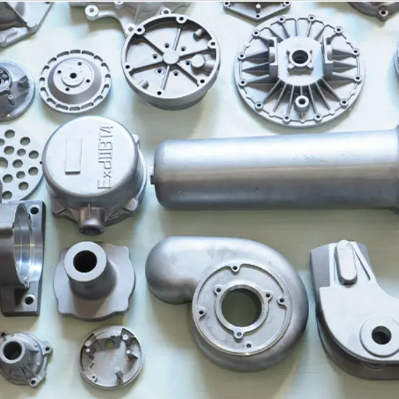Mobile:+86-311-808-126-83
Email:info@ydcastings.com
Innovative Design of Composite Impellers for Enhanced Performance and Efficiency in Pump Systems
Understanding Composite Impellers Innovations and Applications
The advancement of materials science has paved the way for the development of composite impellers, which are gaining popularity across various industries due to their superior performance characteristics. An impeller, a rotating component used in pumps, compressors, and turbines, plays a crucial role in fluid dynamics. The significance of using composite materials in the construction of impellers cannot be overstated, as it enhances efficiency, reduces weight, and improves durability.
What Are Composite Impellers?
Composite impellers are made from a combination of materials, typically involving a matrix of resin reinforced with fibers, such as carbon, glass, or aramid. This hybrid structure enables the impeller to leverage the benefits of both materials—metallic stiffness and thermal stability combined with the lightweight and corrosion-resistant properties of composites. As industries continue to innovate, the demand for composite impellers grows, particularly in aerospace, marine, automotive, and industrial applications.
Advantages of Composite Impellers
1. Lightweight One of the most significant advantages of composite impellers is their reduced weight compared to traditional metal counterparts. This attribute is critical in applications where weight savings can enhance performance, such as in aerospace and automotive engineering.
2. Corrosion Resistance Composite materials offer excellent resistance to corrosion and damage compared to metals. This property is particularly beneficial in environments where impellers are regularly exposed to harsh chemicals, saltwater, or varying temperatures.
3. Improved Aerodynamics The design flexibility of composite materials allows for intricate shapes and optimized aerodynamic profiles. This leads to greater efficiency in fluid flow, ultimately enhancing the overall operational performance of pumps and turbines.
4. Thermal Performance Composite impellers have favorable thermal characteristics, which means they can withstand a wide range of operating temperatures. This feature prevents deformation and maintains performance integrity in challenging conditions.
5. Reduced Maintenance The durability of composite impellers contributes to lower maintenance costs. With enhanced resilience against wear and environmental factors, these impellers often require less frequent replacement, yielding significant cost savings over time.
Applications of Composite Impellers
composite impeller

Composite impellers find applications in numerous sectors
- Aerospace In the aerospace sector, lightweight and high-performance components are crucial for fuel efficiency and overall aircraft performance. Composite impellers are increasingly used in the engines of aircraft, contributing to their efficiency and power.
- Marine The marine industry benefits from composites, especially in the manufacture of propellers and pumps that are exposed to saltwater. The corrosion resistance of composite materials significantly extends the lifespan of these components.
- Automotive In high-performance vehicles, composite impellers are employed in turbochargers and other hydraulic applications, where weight reduction and improved efficiency are pivotal.
- Industrial Applications Various industrial processes utilize pumps and compressors equipped with composite impellers to enhance fluid movement. Their increased efficiency can lead to energy conservation and lower operational costs.
Challenges and Future Prospects
Despite the numerous advantages, the adoption of composite impellers is not without challenges. The manufacturing processes can be complex and may require specialized techniques that can increase production costs. Additionally, concerns about the long-term durability of some composite materials under extreme conditions are being actively researched.
Nevertheless, innovation within the field of composites continues to provide solutions that mitigate these challenges. With ongoing advancements in material science, it is expected that composite impellers will become more prevalent in critical applications where performance and reliability are paramount.
Conclusion
Composite impellers represent a significant evolution in the design and functionality of fluid handling systems. Their unique properties provide advantages that can lead to enhanced efficiency, reduced weight, and improved durability across various industries. As technological advancements continue to unfold, the scope for composite impellers is bound to expand, marking a transition towards more sophisticated and sustainable solutions in fluid dynamics.
-
Understanding Metal Casting TechniquesNewsApr.02,2025
-
Understanding Exhaust Manifolds for Enhanced Engine PerformanceNewsApr.02,2025
-
The World of Metal FabricationNewsApr.02,2025
-
Key Components for Pump and Turbo EfficiencyNewsApr.02,2025
-
Essential Tools for Automotive Maintenance and RepairNewsApr.02,2025
-
Durable Valve Components for Effective Water ManagementNewsApr.02,2025











